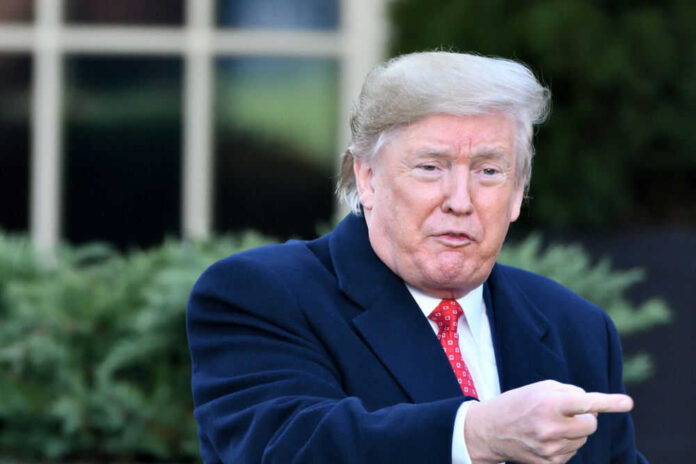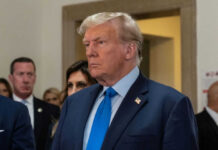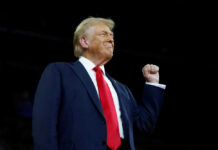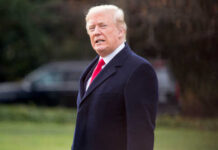
(RightWingJournal.com) – Donald Trump’s latest allegations of sabotage at a high-profile event have sparked a whirlwind of speculation and debate.
Story Snapshot
- Trump demands arrests and a UN investigation over technical failures.
- Event featured a broken escalator and teleprompter malfunction.
- Trump claims these incidents are deliberate acts of sabotage.
- Media and experts question the plausibility of Trump’s claims.
Trump’s Sabotage Allegations: A Closer Look
During a major public appearance, Donald Trump faced unexpected technical issues, a broken escalator and a malfunctioning teleprompter. Trump immediately labeled these incidents as acts of “triple sabotage” and demanded that those responsible be held accountable through arrests and a United Nations investigation. His response has intensified the media spotlight, with many questioning the validity and motives behind his allegations.
These incidents occurred in a politically charged environment, where the stakes were high and the audience was vast. While technical problems are not uncommon at large-scale events, Trump’s immediate escalation of the issue to an international level is unprecedented. By involving the UN, Trump has shifted the narrative from mere technical glitches to potential international intrigue, drawing both criticism and support from various quarters.
The Historical Context of Trump’s Claims
Trump has a history of framing logistical problems as intentional acts against him. This pattern dates back to his 2016 campaign, where he frequently accused media and event organizers of bias. These allegations often serve to reinforce his image as a besieged outsider, battling against a vast array of perceived enemies. The latest incident is consistent with this narrative, highlighting Trump’s tendency to view technical mishaps through a conspiratorial lens.
In the current political climate, Trump’s claims have found resonance among his supporters, who are quick to accept the narrative of sabotage. However, critics and neutral observers often dismiss these assertions as unsubstantiated and politically motivated. The lack of concrete evidence supporting deliberate sabotage stands in stark contrast to Trump’s bold claims.
Impact and Implications of the Allegations
The short-term impact of Trump’s allegations includes increased media attention on event security and logistics. Long-term, there is a risk of normalizing conspiracy theories around technical failures, further eroding trust in event management and the media. This situation also places additional pressure on event staff, who may face undue scrutiny and blame for issues often beyond their control.
Economically, event organizers might incur higher costs to prevent and mitigate technical failures. Socially, the deepening of partisan divides and mistrust could have lasting effects on public discourse. Politically, Trump’s claims reinforce his outsider narrative and allegations of persecution, potentially energizing his base while alienating others.
Expert Perspectives on the Incident
Event management experts typically attribute such technical failures to error rather than sabotage, noting the complexities involved in large-scale events. Political scientists suggest that the use of conspiracy framing can be an effective tool for mobilizing supporters and deflecting blame. Diverse viewpoints emerge, with supporters viewing Trump’s claims as credible, while critics see them as politically driven rhetoric lacking factual basis.
Credible media outlets and technical experts have not found evidence supporting deliberate sabotage in this incident or similar past events. The contrast between the lack of evidence and Trump’s assertions highlights the broader challenge of navigating truth and rhetoric in today’s politically charged environment.
Copyright 2025, rightwingjournal.com





























